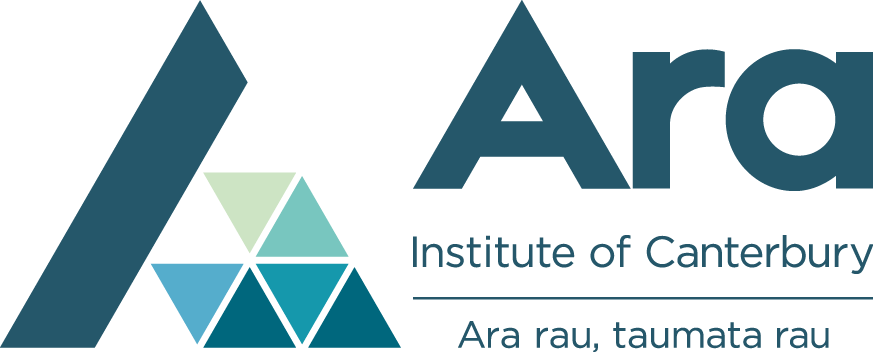About Certificate In Fashion in Ara Institute of Canterbury
Deliver on your design aspirations and learn the conceptual and construction skills needed to meet fashion industry expectations.
This certificate is a great pathway to working in the fashion industry or to further study.
You will gain entry-level skills in pattern-making and garment construction. By working alongside our local industry we'll show you how the industry works and what goes on in a range of workplaces. We'll also introduce you to a range of textiles and the basic skills of fashion design.
At the end of the course you should be able to apply these skills in a garment production workshop, under the direction of a designer or production manager. You'll be ready to work in fashion retail, with an understanding of how garments are made and marketed, and you'll be able to make a range of basic garment types.
Career opportunities
Our programme will set you up for fashion industry jobs such as an assistant patternmaker, garment technician, assistant machinist, cutter's assistant, retail merchandising, assistant or production assistant. It's also an ideal stepping stone to further study in this dynamic industry.
Study pathways
As a graduate of this certificate you'll have great basic technical skills. If you want to progress further down the path to becoming a production manager, a stylist, a fashion retailer, or an independent fashion designer, you may wish to advance to our degree programme, the Bachelor of Design (Fashion Technology and Design). If you have good results in the certificate, you can apply by submitting a portfolio workbook and written statement along with your degree application. Staff will advise you on how to put together a strong application.
Academic requirements
-
40 credits NCEA Level 1, including 10 literacy credits and 10 numeracy credits.
If you have undertaken examinations other than NCEA (e.g. International Baccalaureate, Cambridge Examination), Ara will assess your qualification for academic entry equivalency.
Alternative requirements
-
Still want to study but don't meet the Academic Requirements?
If you show that you have equivalent skills for tertiary study gained through study, work and/or life experience, you may be able to gain alternative entry.
Additional requirements
English requirements
-
What if English is not my first Language?
If English is not your first language, we want to make sure that you will be successful in your chosen programme of study. Please provide a result from a test or qualification on the acceptable alternatives English Proficiency Outcomes Chart .
OR
- If you are a New Zealand Citizen or Permanent Resident, complete an Admission and Enrolment form and Ara will contact you regarding a free assessment.
- If you are not a New Zealand Citizen or Permanent resident, book an IELTS, Pearson or other test through the Ara Examination Centre or in your home country.
IELTS scores used must be taken from a single IELTS test report form and are valid for two years from the date of the test.
Ara Institute of Canterbury Tuition Fees
| Courses |
Duration |
Tuition Fees |
| Engineering (2 Courses) |
2 Year - 3 Year |
NZD 20860 - NZD 21280 |
| Science (1 Courses) |
1 year |
NZD 21280 |
| Arts (1 Courses) |
3 year |
NZD 21280 |
| Hospitality & Tourism (3 Courses) |
1 Year - 2 Year |
NZD 19150 - NZD 19500 |
| Information Technology (IT) (1 Courses) |
1 year |
NZD 19630 |
| Banking & Finance (1 Courses) |
1 year |
NZD 19500 |
| Management (6 Courses) |
1 year |
NZD 18400 - NZD 20090 |
New Zealand Living Expenses
You'll require between $20,000 and $25,000 a year ($380–480 per week) for housing/rent, food, transportation, phone bills, internet usage, and entertainment, in addition to your tuition and insurance fees. The average living expense will be the same for everyone, regardless of their tuition or course price. Please keep in mind that these are only suggestions; the Immigration New Zealand requirement is $15,000 per year including return travel or an additional $2,000.
| General expenses |
Cost
(in NZ dollars) |
| Rent (per month) |
$800–$950 |
| Groceries (per week) |
$100–$150 |
| Gym membership (per year) |
$300 |
| Entertainment (per week) |
$50 |
| Milk (per litre) |
$3 |
| Coca Cola (per can) |
$2 |
| Cup of Coffee |
$3–$5 |
| Lunch from University food hall or campus café |
$7–$12 |
| Local calls made from a cell-phone |
$0.50–$1.50 |
| Taxi - 5 km ride |
$10–$12 |
| Movie ticket |
$10–$14 |
| Visit to doctor |
$45–$85 |
